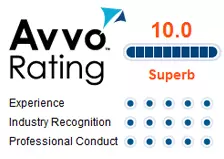In a prior article we discussed why a prosecutor should not be allowed to suggest to a jury during a Michigan DUI trial that a driver has prior experience with alcohol. However, if the court were to find that evidence of alcohol tolerance is somehow relevant in a drunk driving case then to be admissible such evidence is still inadmissible if the probative value is substantially outweighed by the prejudicial effect, or if there is a likelihood that such evidence will confuse or mislead the jury.[i] When it comes to evidence of relating to tolerance the likelihood of prejudice is tremendous.
In criminal cases, all prosecutorial evidence tending to establish guilt is prejudicial. But unfair prejudice has a tendency “to lure the fact finder into declaring guilt on a ground different from the proof specific to the offense charged” such as emotion.[ii] “Evidence is unfairly prejudicial when a danger exists that marginally probative evidence will be given undue or preemptive weight by the jury.”[iii] Evidence may also be excluded where the probative value is substantially outweighed by the likelihood that the evidence will mislead or confuse the jury.
Misleading or confusing the jury is exactly the problem that exits when a prosecutor states or otherwise intimates that a DUI defendant is tolerant to alcohol. The mere suggestion of alcohol tolerance is bound to have an emotionally negative impact on a juror charged with the responsibility of determining guilt in a drunk driving case.
Furthermore, any suggestion of “tolerance” is marginally probative at best as it only asserts that some unnamed, unidentified persons might be able to fool the officers. But the implication is severe…the jury hearing this from the prosecution will likely associate the defendant with this ability. In doing so, the jury will be giving the “evidence” undue weight.
The evidence will also be misleading or confusing to the jury as they might, even with a limiting instruction, feel as though some elements of the crime do not have to be proven or the defendant is able to hide bad behavior from authorities. Federal courts have held, while interpreting an identical Federal rule, that evidence showing what other people do, does nothing to show what the person in question would do rather, just prejudices the party and confuses the jury.[iv]
[i] MRE 403
[ii] Old Chief v. United States, 519 U.S. 172 (1997) (interpreting corresponding federal rule).
[iii] People v. Crawford, 458 Mich. 376, 398, 582 N.W.2d 785 (1998).
[iv] Aiken v. Rimkus Consulting Group Inc., 333 Fed.Appx. 806.









